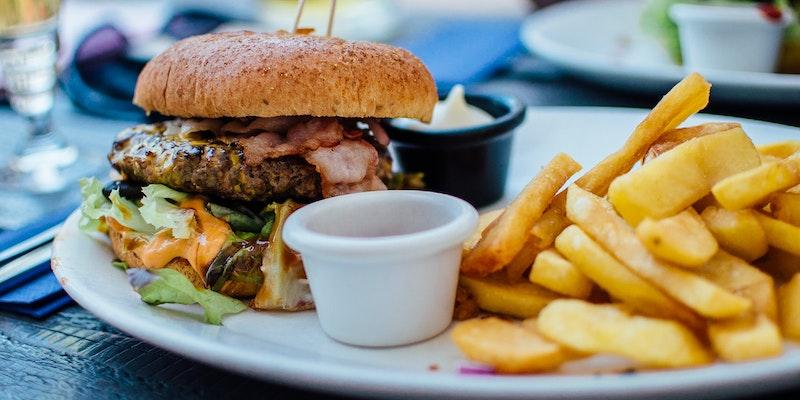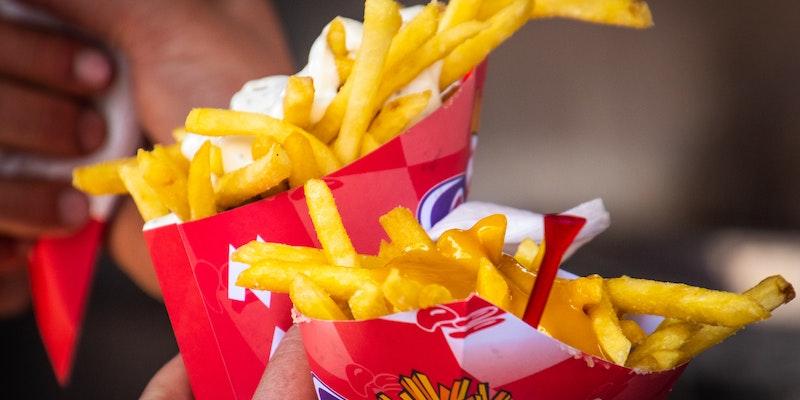The Truth About Cheat Days and Meals in Weight Loss Goals
Nov 02, 2023 By Madison Evans
Cheat days are prevalent in fitness. You must follow a diet for most of the week, but on one day, you can eat all your favorite unhealthy foods. Does that sound fun? Diet matters whether you want to reduce weight or gain power. Cheat meals and days can also help you reach your
workout goals. People continuously seek practical solutions to reduce weight as obesity concerns rise, and they fear cheat days and meals. But, cheat days are not the problem. The actual problem is sometimes choosing a the correct meal for your cheat day. You can make and keep healthy behaviors to attain your health or weight loss objectives without giving up your favorite meals.
Cheat Meals and Cheat Days
Exercise freaks have always enjoyed cheat meals and days. Their popularity in diet culture is growing, mainly because of social media. You may balance cheat meals with a rigid diet depending on your goals and tastes.
Cheat meals and days are planned diet alternatives, allowing people to breach their diet regulations temporarily. Let them enjoy themselves sometimes to make them more inclined to stick to their diet plan most of the time. Cheat meals and cheat days are the primary sorts. An occasional non-diet meal is a "cheat meal." A "cheat day" lets you eat whatever for a day.
The versatility of cheat diets makes them distinctive. Based on diet and taste, they are added differently for each person. People consume various items for cheat meals. Many include high-calorie sweets that aren't part of a healthy diet.
Most significantly, cheat meals and days have no set frequency. You can have 2 cheat days a week. Regularity depends on health or weight loss goals. Some cheat weekly, while others modify this depending on their goals.
When Cheat Meals Are Allowed?
Remember that the cheat meal plan may not suit your diet. A ketogenic diet must be followed precisely, with limited space for variance. Therefore, cheating works best with diet regimens that allow for mistakes. Cheat meals are scheduled indulgences that include diet-prohibited items, whereas cheat days let you eat everything you want. Because they're versatile, these solutions can fit diverse diets and tastes.
Benefits of Cheat Days and Meals

Cheat meals or cheat days are planned breaks from strict eating plans that can help dieters in many ways, including:
Keeping Hormones in Check
When it comes to hormones that control metabolism and insulin, cheat meals play a part. These tasty meals help reset and balance the chemicals that contain these essential processes.
For example, they help restore glucose stores, give you more energy, and keep your body's fat-burning systems going. This mix of hormones helps keep the metabolism working well generally.
Increased Metabolism
Occasionally, eating cheat meals might boost metabolism. These occasional pleasures raise leptin levels when added to your diet. Leptin is called the "anti-starvation" hormone since it signals your brain you're full, reducing hunger. High leptin levels decrease metabolism by preventing energy savings. Because of this, your body may burn fat more effectively, helping you lose weight.
Increased Diet Adherence
Cheat meals can effectively support diet adherence over time. Planning self-care helps dieters stick to their diets. Knowing they can eat their favorite meals sometimes may drive them to keep to their weekly goals. People who feel better emotionally and don't have an "all or nothing" mindset are likelier to follow eating programs.
Help for Your Mental Health
Eating cheat meals can help your mental health because they take away the feeling of being limited in what you can eat. Knowing that you can sometimes give in can boost your mood. It changes how you feel about food and lowers the stress and worry of strict diets, making it easier to stick to your plan over time.
Physiological Effects of Cheat Days and Meals
Cheat days or meals temporarily let you eat extra calories, giving your body and mind a respite from a rigorous diet. Researchers found that alternating days of eating less and days of eating more can help gamers lose weight without much difficulty. Riding in this manner doesn't usually cause regression.
Cheat days can restore energy and produce chemicals that help you burn weight and feel complete. They also boost metabolism. Cheat days may release leptin, a peptide hormone, from fat cells. After overeating, leptin may accelerate your metabolism and burn more calories. The 24-hour metabolism increase is expected to be 3–10%.
Overindulging on cheat meals or days might hinder your fitness objectives. Overeating might disrupt your fat-loss calorie balance. Tracking your cheat day snacks might help you avoid mistakes and maintain your workout routine.
Optimizing Cheat Meals

The following ways might let you enjoy cheat meals while meeting your health and fitness objectives.
Proper Timing
When you eat cheat meals, you must see how well they work. You can ensure that your cheat meals don't exceed your daily calorie limit by planning them for times when you want certain unhealthy, high-calorie foods, like on the weekends or for special events. This method gives you extra drive because you have something to look forward to. This makes it easier to eat healthily for the rest of the week.
Moderation
Even though cheat meals are fun, it's important not to overeat them. If you overindulge on cheat meals, you can quickly lose the weight loss you've done. To get the most out of these meals without ruining all your hard work, you must balance enjoying them and not overeating them.
Water Retention Awareness
Cheat meals usually include foods high in carbohydrates, which can make you temporarily hold on to water because your body stores more energy. If you know about this effect and drink more water the day after a cheat meal, you can keep your general diet in balance. This knowledge keeps you from mistaking any short-term weight gain for fat gain, giving you a better picture of your progress.







